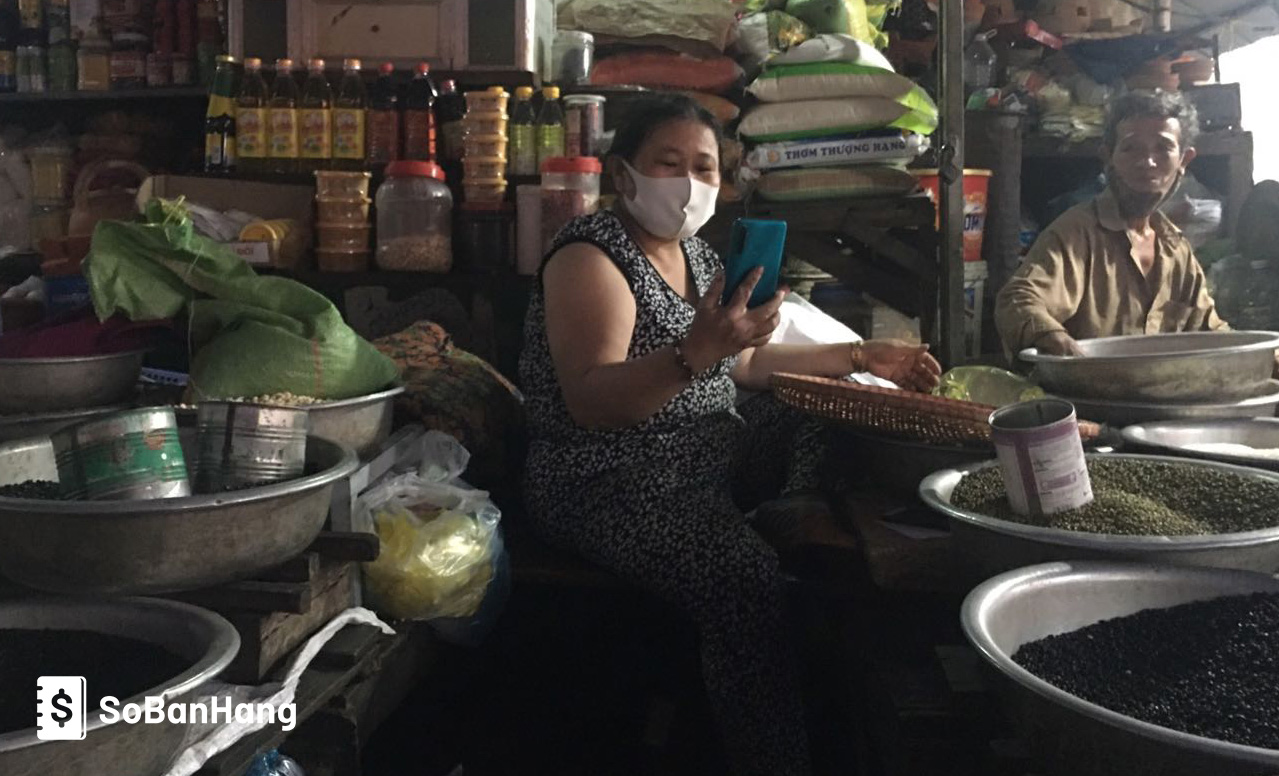A few months ago, brothers Hai Nam Bui and Hai Long Bui were developing a bookkeeping app for small retailers in Vietnam. Called SoBanHang (or “sales book”), it would help businesses that usually rely on paper ledgers digitize their operations, similar to Khatabook in India and BukuKas and BukuWarung in Indonesia. Then a new COVID-19 outbreak hit Vietnam. The businesses SoBanHang had been working with, which are often family owned and have less than five employees, struggled to cope. The team held a hackathon and came up with a new product for retailers to create online stores and manage orders. Since launching three months ago, SoBanHang’s “hyper local e-commerce enabler” has signed up almost 20,000 merchants, many selling online for the first time.
The company announced today that it has raised $1.5 million in seed funding, with participation from investors including FEBE Ventures, Class 5 and Kevin P. Ryan, founder of businesses like Gilt Groupe, Business Insider and MongoDB.
Before launching SoBanHang, Hai Nam Bui founded Datamart Solutions, a data analytics and automation platform, and served leadership roles at Lazada. Hai Long Bui also spent several years in management at Lazada, before holding the chief analytics and chief technology officer positions at Landers Superstore, a Philippines supermarket chain.
The idea for SoBanHang was planted when Hai Nam Bui visited a grocery store while wearing a Lazada T-shirt. The store’s owners saw the shirt and asked him how they could start selling online. So he helped them register an account on Shoppe and start uploading product photos and descriptions.
“After I had everything set up, they got their first order and asked, ‘how can I ship the product?’” Hai told TechCrunch. “I said that a third-party logistics provider will come and pick up the goods. And then they asked about the money. They didn’t understand the process and they didn’t feel comfortable giving goods to a third-party logistics providers.”

One of SoBanHang’s clients
Since the majority of e-commerce orders in Vietnam are paid through cash on deliveries, the store’s owners also had questions about payment. Hai explained that the customer would hand cash to the rider, who would then give it to Shoppe and, in turn, Shopee would deposit it into the store owner’s digital wallet.
“And they asked ‘where is the wallet? How can I withdraw money to a bank account if I don’t have a bank account?’ That was an a-ha moment, when I realized that a lot of e-commerce platforms are still not touchable to about 90% of retailers in Vietnam,” said Hai. “The systems are still way too complex for them.”
Hai and his brothers started working on a digital bookkeeping app to help businesses digitize their operations, but when the outbreak and lockdowns hit, it became imperative to help them start selling online immediately. Based on SoBanHang’s research, there are about 16 million “nano” to micro-sized businesses in Vietnam. Many are very local, serving customers within a couple kilometers. In fact, businesses on SoBanHang often perform their own deliveries on foot.
“That was our second a-ha moment about the retailers, which is that they are selling to customers in their neighborhoods. The buyers and sellers are actually within walking distance. When they connect with buyers, they can make that order transaction, and then retailers deliver the good themselves and collect the money at the customer’s doorstep,” said Hai. This eliminates the need for SoBanHang to have complex logistics or payment systems, or for merchants to use third-party delivery apps that charge high commission fees.
Many of SoBanHang’s clients previously managed most of their transactions on paper and didn’t have a point-of-sale system or laptop, so the app is the first time they have digitized their operations. SoBanHang can be used for all kinds of retailers, but during the COVID-19 outbreak, it’s seen the most adoption from food and convenience stores.
The retailers are small enough that their customers can just message them orders, but SoBanHang makes the process smoother and enables them to sell more. Having an online storefront also helps prepare retailers for other COVID-19 outbreaks and maintain relationships with their customers.
For example, SoBanHang has a strategic partnership with Viettel, the largest telecommunications company in Vietnam. This lets them offer discounted SMS to businesses so customers can see special offers even if they haven’t installed SoBanHang’s app and don’t get its push notifications. For example, if a grocery store wants to sell out their inventory of fresh fish, they can send out a text blast to shoppers.
After lockdown restrictions are lifted, Hai said SoBanHang can help small retailers continue competing against larger players like supermarket and convenience store chains. Their advantage is that “they have a very good relationship with their customers, they know them well and they sit and wait for their customers to come. We want to turn that relationship into a new sales strategy for them.”
In the future, SoBanHang plans to continue working on its original plans for bookkeeping app. Like other bookkeeping apps, it plans to add financial services, like working capital loans that can be disbursed even without a digital wallet or bank account. But in the near-future, the startup will continue helping small retailer sell online for the first time.
